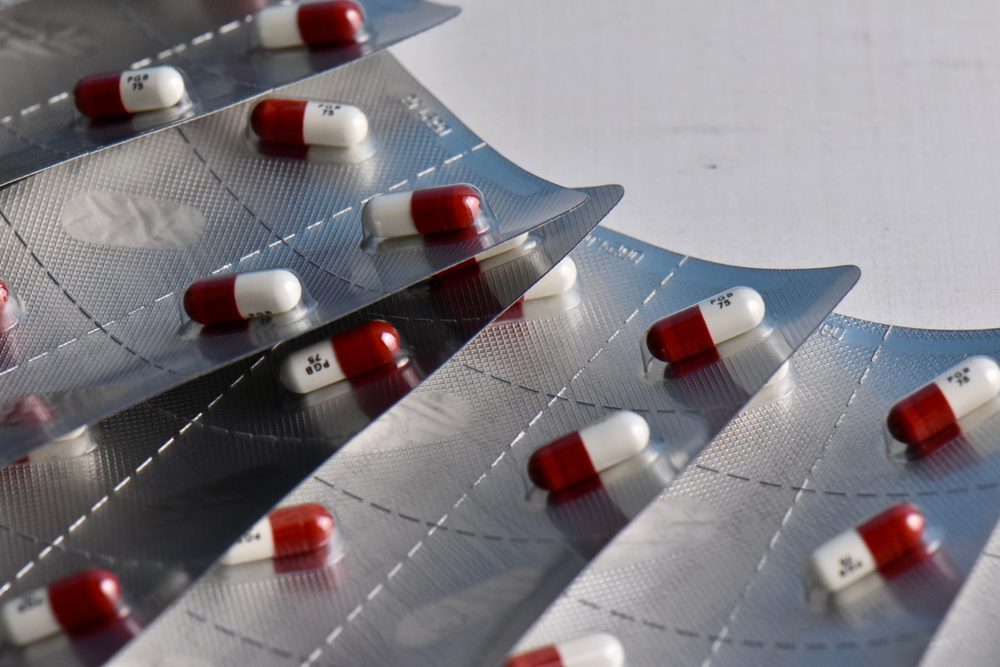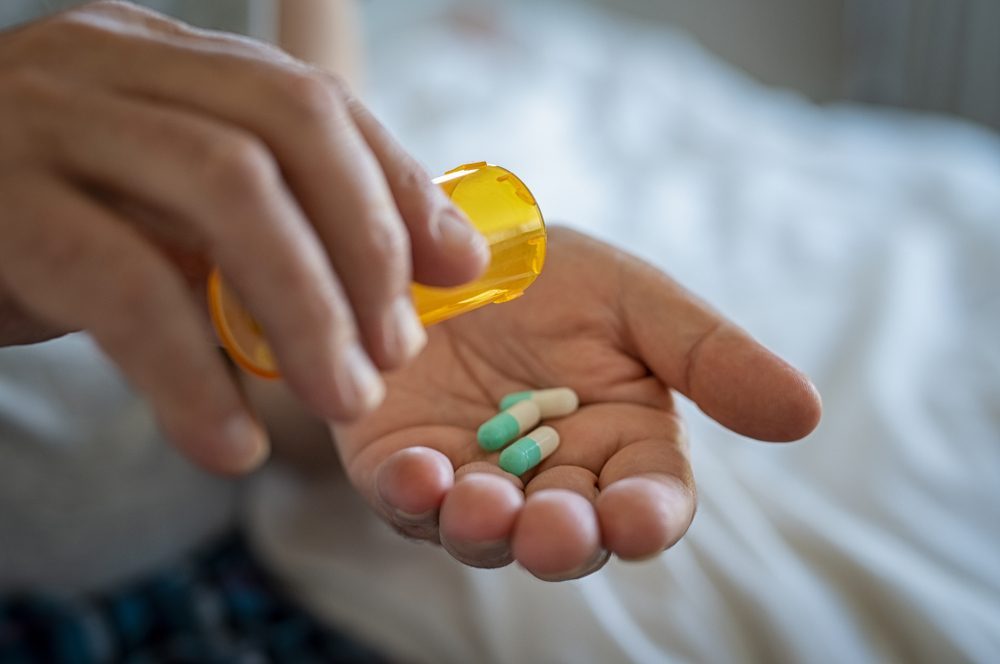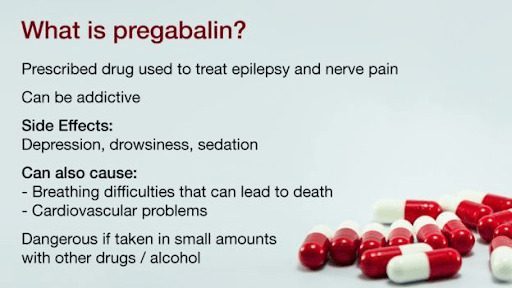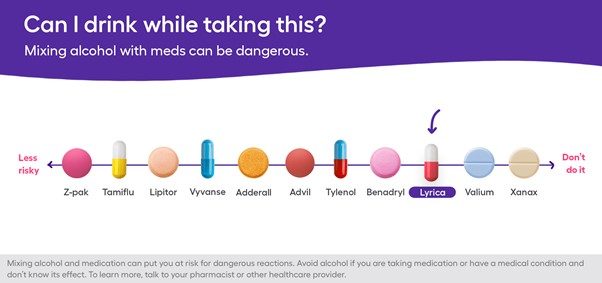
This article explains the dangers of pregabalin addiction. Also, even taking a genuine prescription can lead to dependence and addiction.
Pregabalin is regularly prescribed to treat epilepsy, anxiety and nerve pain. However, there is the potential for pregabalin addiction. This can be particularly problematic in those who mix pregabalin and alcohol. The same issue can also arise if you mix pregabalin and other drugs.
Many people who take pregabalin find that they become tolerant to its effects. They then need to keep increasing the dosage to feel it working.
Unfortunately, this is one of those drugs that do nothing to address the root causes of pain or anxiety. Whilst it does offer effective relief for several conditions, due to its addictive nature, many people find themselves taking the drug for longer periods.
Symptoms of withdrawal from pregabalin are extremely challenging and uncomfortable. If a pregabalin detox is not done with medical assistance and properly, withdrawal symptoms can even become life-threatening.
Here, we look at the symptoms of pregabalin addiction, abuse and withdrawal. We also advise how to access fast and effective professional help if you or a loved one has a problem with this commonly prescribed drug. We ask why is Lyrica pregabalin addictive? What are the risks of overusing pregabalin and what can we do about it?
Pregabalin (Lyrica) is a gabapentinoid drug and works similarly to gabapentin. Both are Class-C controlled substances. This is because of an increasing rise in deaths resulting from the abuse of gabapentinoids.
Sold under the popular brand names of Lyrica, Alzain and Axalid, pregabalin is for nerve pain and acts as an anti-seizure medicine.
Doctors have prescribed it for other purposes in more recent years, such as for anxiety. However, if used as an anti-anxiety medication, it is important to be careful. This is because of its ability to sedate and its euphoric effects.
Pregabalin has also been trialled experimentally to treat drug and alcohol withdrawal. However, there is little evidence currently that supports any benefits of using pregabalin over traditional alcohol withdrawal medications.
The longer you use pregabalin, the more risks associated with this drug increase—the same goes for the risk of developing a prescription drug addiction.

Pregabalin has various suggested uses and also some off label uses.
Pregabalin can be prescribed for the following conditions:
Pregabalin works in different ways depending on what doctors prescribe it for:
Caution should be exercised when prescribing pregabalin for patients that are:
Pregabalin should not be prescribed for those that are under 18 years old.
If you are taking pregabalin and are experiencing any troubling or long-term side effects, you should speak to your doctor as soon as you can.
A Swedish study conducted into the risk factors associated with gabapentinoids showed that pregabalin users were at increased risk of:
The study further found that 15 to 24-year-olds were more likely to experience serious side effects.
Further results of the study compared Pregabalin and gabapentin. They found that the risks were associated specifically with Lyrica (also known as pregabalin).
Usually, with a drug that slows reactions and causes reduced awareness, you expect elderly patients to be in the highest risk category. However, this was not the case with pregabalin. Perhaps this is thanks to caution being exercised in prescribing for over 65’s.
The study concluded there were increased prescriptions for off label uses such as anxiety in the younger generation. They were the age group most likely not to take the associated risks seriously. This age group was also likely to develop a pregabalin dependence (addiction).
There are many risks and dangers associated with the abuse of pregabalin. Regardless of age, anyone who misuses pregabalin will be at risk of harming and developing an addiction.
The most common methods of pregabalin abuse are:
Mixing pregabalin with another CNS depressant increases the effects of both drugs and puts a person at serious risk of harm. It also increases the risk for Lyrica addiction.
When abused, pregabalin produces effects similar to feeling drunk on alcohol. Some people feel increased euphoria, whilst others experience drowsiness, confusion and lack of coordination. It is these effects that have earned it the nickname “Budweiser.”
A very common misuse is drinking alcohol whilst taking it. This increases the feelings of intoxication. It also increases the risk of accidents and accidental overdose.
Dependence on pregabalin happens quickly, even when following a prescription. This can cause serious psychological and physical withdrawal symptoms on stopping or trying to stop the drug.
If your doctor prescribes pregabalin and you wish to stop taking it, please always speak with them first. They can advise you of the safest way of stopping the drug.

Pregabalin addiction is not as simple as becoming dependent. While, in most cases, dependence can be a sign of an addiction, it doesn’t paint the full picture.
Some other elements have been specified as increasing the probability that a person will go on to develop a pregabalin addiction, including:
Addiction develops from repeated exposure to a drug and misusing it.
Pregabalin addiction occurs when taking the drug no longer triggers the brain rewards centre. This happens following over-exposure.
The lack of reward ( high) will cause a person with pregabalin addiction to take more than is considered safe. This repeated behaviour causes further lasting changes in the brain that aren’t stopped simply by stopping pregabalin.
Any addiction is a disorder of the brain. Due to the characteristics of addiction, such as craving and compulsion, if left untreated, it will only get worse.
The damage that addiction causes to the prefrontal cortex. Our reward centre and other crucial parts of the brain start to affect the way a person thinks and behaves. Everything is about feeding the addiction, whatever the possible consequences to health, work and social wellbeing.
If you are concerned that you or a loved one are suffering from an addiction to pregabalin (Lyrica), it is important to seek professional help and treatment without delay.
Addiction is a complex brain disorder that is life-threatening. The good news is that addiction is preventable and treatable.
Signs of pregabalin addiction include:

One of the most common forms of use is to mix it with other drugs for increased feelings of intoxication. This, of course, carries substantial risks. Below are some of the side effects of mixing pregabalin and alcohol or other drugs.
The effects of mixing pregabalin and alcohol:
The effects of mixing pregabalin and opiates:
The effects of mixing pregabalin with benzodiazepines or sleeping tablets:
Mixing pregabalin with any illicit or recreational drug is strongly advised against the increased risk of injury, overdose and death.
If you have been taking pregabalin for a prolonged period, you mustn’t just stop the medication abruptly.
How you withdraw from pregabalin will depend on whether you have an addiction to the drug.
If you have a pregabalin addiction, you will likely find that you cannot control reducing the drug by yourself.
The severity and duration of your withdrawal symptoms will depend on several factors. These factors will be personal to you.
If you are dependent on pregabalin through a normal prescription that you have followed, your symptoms should be mild. This provides you taper off the drug and follow your doctor’s directions.
Having an addiction to pregabalin, especially where alcohol or other drugs are involved can result in more severe withdrawal symptoms. Detoxing can even cause life-threatening symptoms if not carried out medically.
The withdrawal timeline will start soon after you miss your first dose, with symptoms hitting a peak anywhere from 12 to 48 hours after your last dose. How quickly you feel the start of withdrawal will depend on how often you take the drug.
In studies on how pregabalin withdrawal works, it was similar to other CNS depressants such as alcohol and benzodiazepines. This is why stopping the drug too quickly can result in some very nasty withdrawal symptoms.
The method of detox used to stop pregabalin will affect how long withdrawal symptoms continue. Most cases report symptoms for at least a week after completely stopping the drug.
In cases of serious Pregabalin abuse and addiction, some symptoms can continue for a month or more after stopping.
Pregabalin withdrawal can be safely and effectively managed by doing a full medical detox. This will reduce the severity and duration of your withdrawal symptoms.
Medical detox will also reduce your risk of developing protracted withdrawal syndrome (PWS) and post-acute withdrawal syndrome (PAWS).
A medically managed detox conducted within one of our CQC registered rehabs offers the following benefits:
Medically managed detoxes for pregabalin are very successful. This is because of the high levels of professional support and reduced withdrawal symptoms.
Following any medical detox, a full bespoke rehabilitation programme and aftercare are strongly recommended.
Addiction is often painted as a hopeless condition, from which very few recover. Our experience is that this is not the case when a person commits to a recovery programme. Many can and do recover from addiction and lead happy and fulfilling lives.
We offer many different treatment options for those that wish to access private treatment for a pregabalin addiction or abuse problem. The most successful long term outcomes are usually in our patients who commit to an inpatient residential stay.
Treatments that we offer for pregabalin addiction are evidence-based and made up of 3 key elements:
Our residential rehab programmes for pregabalin abuse and addiction include many evidence-based therapies, with each treatment tailored to your individual needs.
Treatments that are proven to treat addiction that we provide include:
As there is no one method of addiction treatment that works for all, it is important that we comprehensively assess your treatment needs before making any recommendations.
We can then determine which of our rehab programmes would be best suited to you and is likely to provide the best outcome by conducting a full assessment.
All of our treatment centres are CQC registered and highly regulated. We can help you or your loved one to make a full recovery from pregabalin addiction and ensure a complete healing and immersive experience.
Call one of our friendly addiction treatment counsellors today for a free and confidential assessment.
Sources: